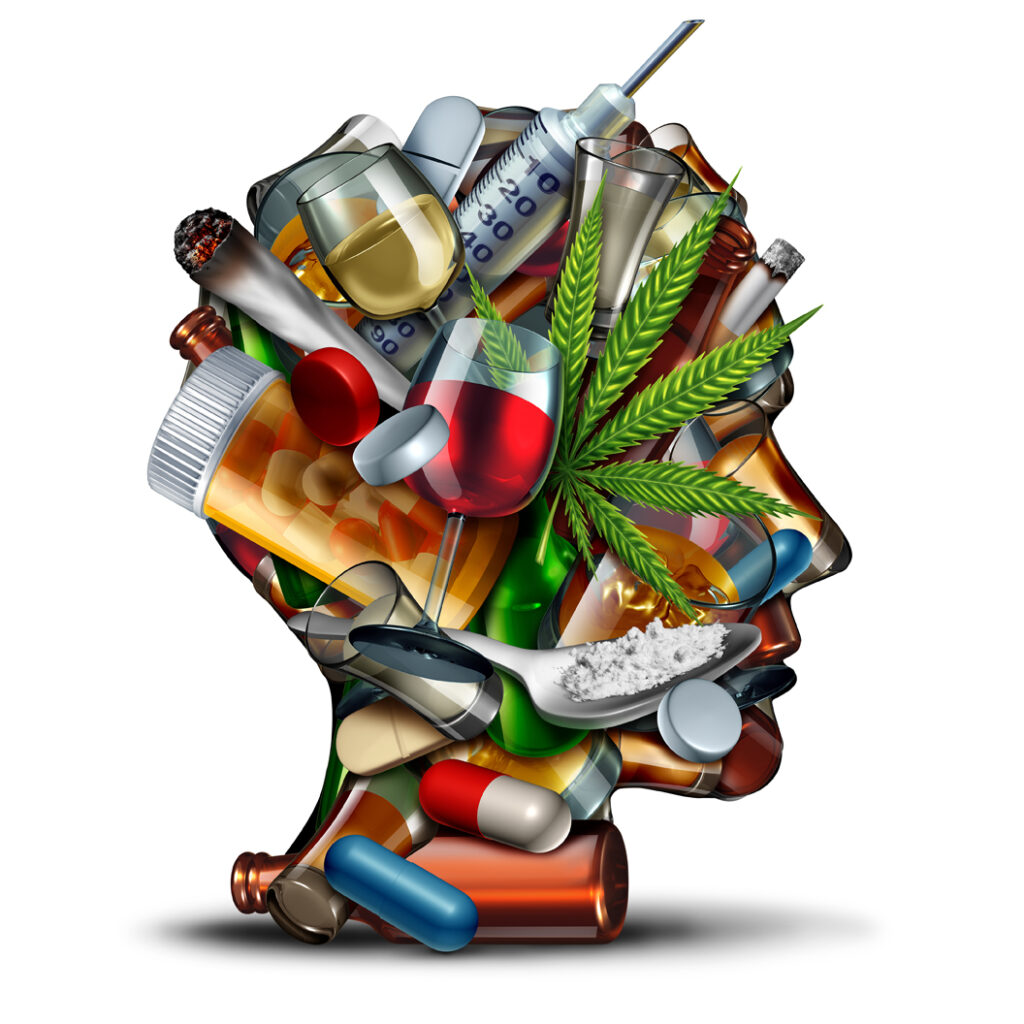Addiction and Obsession
How It Impacts The Addict And Where It Can Lead

We all need oxygen. Without it, we will die within minutes. Yet, we rarely think of this basic need. Oxygen surrounds us abundantly; all we have to do is breathe, and we don’t even have to think about doing that because breathing is an automatic reflex. Only when we can’t breathe or when oxygen is not available to us do we genuinely feel this need for air. We can think of nothing but getting oxygen back into our system to breathe easily again.
Chemically dependent persons (alcoholics and drug addicts) also need oxygen all the time. They feel they need a chemical as well, almost as much as they need oxygen, so that they, too, can breathe easily once again. Their urge to get the chemical back into their system is frequently as overwhelming and as primary as our urge for oxygen. When this urge is manifested, the chemically dependent person will be compelled to drink or use their drug of choice. They will go to any lengths to get the substance back into their system; nothing else will matter, not their spouse, children, job, or anything; only the relief the chemical creates.
The obsession overpowers the addict
AA (Alcoholics Anonymous) defines alcoholism as a twofold disease: a mental obsession and a physical addiction.
This compulsion develops very early in addiction, long before observable symptoms of physical dependence. The obsession, the compelled urge for the relief obtained by consuming alcohol or drugs, strikes intermittently; it seems to have a life of its own and, while it will occur in reaction to external events, it seems to be far more dependent upon internal direction. It will come and go no matter what is happening in the addict’s life.
The compulsion or obsession is a subjective symptom of addiction rather than an objective symptom, such as tremors observed by others. We underestimate the power of this obsession if we think of it only as a psychological craving that willpower can control.
While we do not know how such an obsession is formed, we do know its power is far beyond the cravings that nonaddicted persons experience from time to time in their lives. This compelling urge is perceived as a demand by the alcoholic or drug addict. It begins to control their lives in many ways.
Getting trapped by the obsession
The obsession is subtle in the beginning, and, strangely, even as it increases in strength, it is not thought of as anything but a desire by chemically dependent persons. They do not recognize that they have crossed the line from wanting to needing; when they finally acknowledge their need for the chemical, it’s too late. They are trapped.
Right from the onset, addiction begins to dominate the person’s life. It changes the addict’s behaviour regarding chemicals, and so does their thinking. Once addicted, they become preoccupied with getting high, an obsessive thinking pattern characterized by involuntary and progressively recurring thoughts about using alcohol and other drugs.
Alcohol and drugs gain a paramount position
Thoughts of getting high will intrude upon them while they may be deeply engrossed in other matters. Or they will have recurring thoughts about future or past chemical use. They will plot and plan about how to alter their life and that of others so they can use without being caught, criticized or controlled. They will find that just thinking about chemical use will make their whole day better.
As the compulsive urge and obsessive thinking increase in frequency and strength, their relationship with alcohol or drugs will become primary and paramount. Connecting with the chemical high will take precedence over connecting with people in their lives or with previously valued activities. Their relationship with chemicals will become their most important relationship. They will fall madly, passionately in love with getting high. They will be able to think of little else. Unfortunately, their beloved object is a chemical, not a person. This compulsive, obsessive, primary relationship will become their life’s guiding force.
As their drinking and drugging begin to rob them of everyday pleasures, “there (is) an insistent yearning to enjoy life as we once did and a heartbreaking obsession that some new miracle of control would enable us to do it.” (Alcoholics Anonymous, page 151). At this stage, “there is the obsession that somehow, someday, they will beat the game”. (Alcoholics Anonymous, page 23).
As addiction goes out of control, they believe they’re in control
As the alcoholic or addict’s condition gets progressively worse, he begins to slip into a quagmire of denial. The more out of control he is, the more he thinks he can control. “The idea that somehow, someday he will control and enjoy his drinking is the great obsession of every abnormal drinker.” (Big Book of AA, page 30).
AA states that their 12 Steps program “is a group of principles, spiritual in their nature, which, if practised as a way of life, can expel the obsession to drink and enable the sufferer to become happily and usefully whole”.In sobriety, the obsession is “lifted”, and the person is now free from the chains of addiction and free to travel on the happy road to recovery.
Addiction treatment is a gradual process of recalibrating and replacing this obsession with an objective, reality-based perspective that brings balance and serenity into their lives. It requires courage, hard work and professional support. And action, not just words or intentions, or promises. Getting into rehab is a leap of faith!
If you or a loved one needs help to overcome the obsession with alcohol or drugs, call Rahul 98490 69609 or Dr Prasad 78930 03070